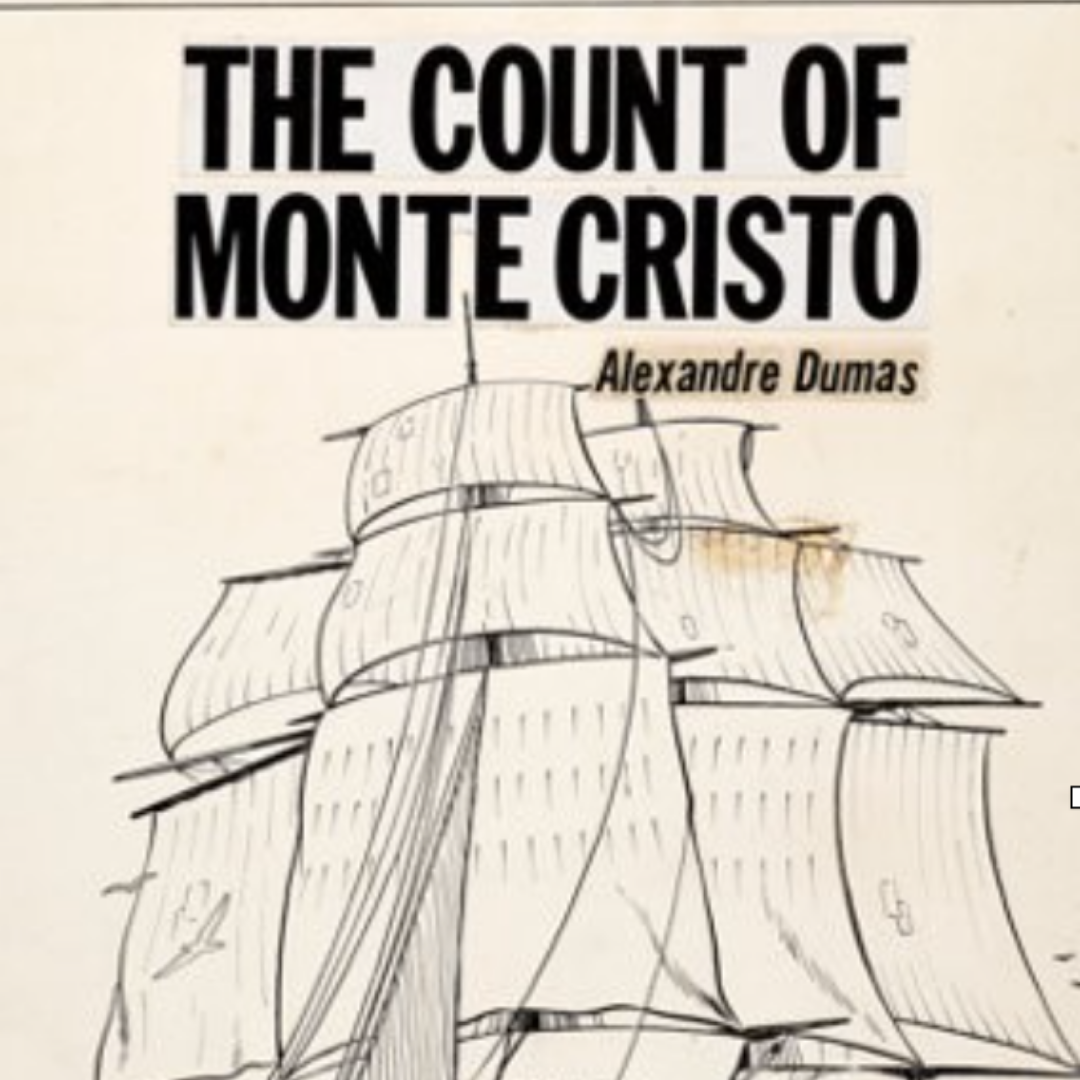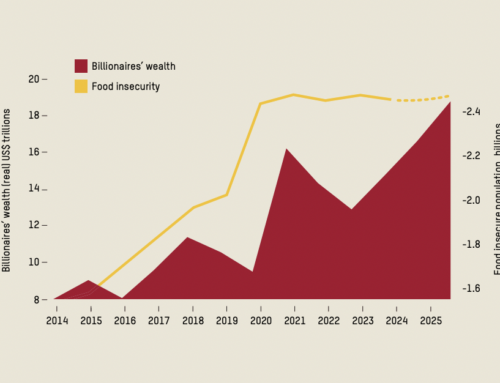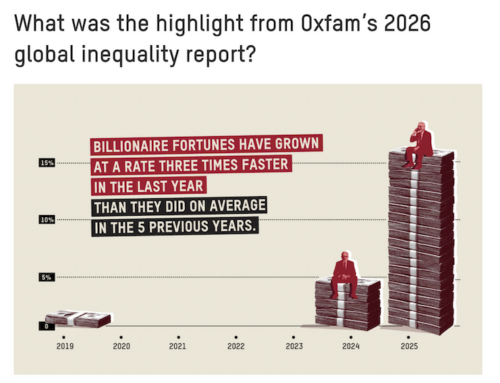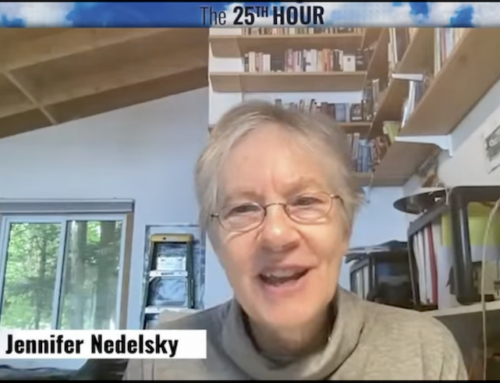
A red silk purse.
In praise of Morell, entrepreneurs and their friends
by Paolo Santori
Every day, enterprises silently tell our world stories of success, innovation, cooperation, but also of competition, failure and despair. At the same time, great stories reminisce enterprises and their heroes – workers, entrepreneurs, accountants.
When the genius and the pen of writers pause to observe the dwellings of work and life, to watch those acting there, Literature manages to forge memorable words, living pages that become companions of our journey.
Among the pages of Alexandre Dumas’ The Count of Monte Cristo, we encounter Pierre Morrel, businessman and shipowner of the Pharaon, a merchant ship. Certainly, it is not easy to stand out among Edmond Dantès and Abbé Faria, characters we all carry in our hearts. Nevertheless, Morrel’s lenience and dignity, his tormented and tragic story, with his (un)happy ending, touch the hearts of the entrepreneurs or those aspiring to be such. Morrel is surrounded by his family, his friends, his “subordinates” (the crew of the Pharaon). Without their existence, there would be no Morrel or his story, just as today no company would survive on mere ideology, without the work, commitment and dedication of many workers. Morell’s story, thus, does not speak only to those who do business: it concerns everyone, it concerns us. So we shall listen responsively to it, silently let Morell and his Pharaon navigate the sea of our existence.
Like his father before him and his grandfather before them, Morrel is the shipowner of a fleet of merchant ships, of which the Pharaon is the flagship. Generally, the shipowner did not necessarily own property to the ship: the shipowner simply took care of the cargo, the fleet, and the success of the business. Nowadays, we would perhaps call him a manager. Morell’s family, who had been in this business for generations, though, accumulated such wealth that they were able to purchase the ship they previously only managed. The first meeting between Dantès, second-in-command of the Pharaon, and Morrel himself reveals much about the difference between owner and manager:
‘Ah! is it you, Dantès?’ cried the man in the skiff. ‘What’s the matter and why is there such an air of tragedy aboard?’
‘A great misfortune, M. Morrel,’ replied the young man,—‘a great misfortune, for me especially! Off Civita Vecchia we lost our brave Captain Leclere.’
‘And the cargo?’ inquired the owner anxiously.
‘Is all safe, M. Morrel; and I think you will be satisfied on that head. But poor Captain Leclere——’ ‘What happened to him?’ asked the owner, with an air of considerable resignation.
Even in the face of the captain’s death, Morrel focuses on his cargo. Like Dumas, we should not take any moralistic attitudes toward the shipowner, as the concern is not for the cargo as an object in se, but for what lies behind it: salaries for his employees, sustenance for his family and, without wishing to embellish or to hide parts of the human soul, a natural desire to make a profit. The greatness of the writer Dumas lies in portraying the real nature of Morell, described not as a hero, but as a practical, honest, sincere man:
‘Ah, Edmond,’ replied the owner, who appeared more comforted at every moment, ‘we are all mortal, and the old must make way for the young. If not, why, there would be no promotion; and as you have assured me that the cargo——.
The course of events tells us that Morell cared about cargo not (only) as an end, but as a means for the sustenance of those depending on it.
Victim of a conspiracy woven by his enemies, and amidst the astonished impotence of his friends, Edmond Dantès is unjustly accused of Bonapartism and locked up in the dreadful prison of the Château d’If, where he will serve a fourteen-years imprisonment service. I personally like to think that, without Dantès’ imprisonment, we would not have read the most beautiful pages of The Count of Monte Cristo, we would have missed Dantès’ prayers and blasphemies, the noise that saved him from death, the encounter and friendship with Faria, the desire for life leading him to escape the prison. In the deepest abysses, in contrast with the most obscure darkness, we often find the clearest and most transparent light. Would we condemn an innocent man to imprisonment just for such beliefs? His father and his beloved Mercedes could do nothing to save poor Edmond from that infamous fate, they were not the only ones to try. Having escaped imprisonment, enriched by the treasure of the island of Monte Cristo, Dantès, in disguise, inquired about the events of the 14 years spent in the cell. The following extract narrates what he learns about Morrel:
‘You have two or three times mentioned a M. Morrel,’ he said; ‘who was he?’
‘The owner of the Pharaon and patron of Dantès.’
‘And what part did he play in this sad drama?’ inquired the abbé.
‘The part of an honest man, full of courage and real regard.

Ten times, as I told you, he came to see Dantès’ father, and offered to receive him in his own house; and the night or two before his death, as I have already said, he left his purse on the mantelpiece, with which they paid the old man’s debts, and buried him decently, and then Edmond’s father died as he had lived, without doing harm to any one. I have the purse still by me, a large one, made of red silk.’
Earlier in the book, Dumas had allowed himself a comment on the mild-mannered Morell: “There was more than benevolence in this action; there was courage”. Morell, who wanted to appoint Edmond captain of his Pharaon, was always a true friend of Dantès. Their relationship was an indelible testimony that authentic and sincere friendship can flourish even in working relationships. Morell’s loyalty to Dantès moves the reader: it is that unseen and unrecognized loyalty that does not seek honours or rewards, but silently nourishes human relationships. Let us leave Dantès, who has now become the Count of Monte Cristo, for a moment, and let us turn to the fate of Morrell:
‘And,’ asked the abbé, ‘is M. Morrel still alive?’ ‘Yes,’ replied Caderousse. ‘In this case,’ replied the abbé, ‘he should be rich, happy.’ Caderousse smiled bitterly. ‘Yes, happy as myself,’ said he. ‘What! Morrel unhappy!’ exclaimed the abbé. ‘He is reduced almost to the last extremity,—nay, he is almost at the point of dishonour.’ ‘How?’ ‘Well,’ continued Caderousse, ‘it was in this way: after five-andtwenty years of labour, after having acquired a most honourable name in the trade of Marseilles, M. Morrel is utterly ruined. He has lost five ships in two years, has suffered by the bankruptcy of three large houses, and his only hope now is in that very Pharaon which poor Dantès commanded, and which is expected from the Indies with a cargo of cochineal and indigo. If this ship founders like the others, he is a ruined man.’ ‘And has the unfortunate man wife or children?’ inquired the abbé. ‘Yes, he has a wife, who in all this behaved like an angel; he has a daughter, who was about to marry the man she loved, but whose family now will not allow him to wed the daughter of a ruined man; he has besides a son, a lieutenant in the army, and, as you may suppose, all this, instead of soothing, doubles his grief. […] ‘And it is thus that Heaven recompenses virtue, sir.’
As Camus keenly reflected on Sisyphus going slowly down the mountain with the stone inexorably rotating downstream, I will ponder Morrel (Sisyphus) with a similar interest. Due to a storm, the Pharaon never made it to port. An honest entrepreneur, a loving father, a good man to his friends, due to many and various hardships – and perhaps some mistakes, Dumas is so gentle as not to tell us explicitly – he contracts debts and is on the verge of bankruptcy. Dumas’s pages are a scathing critique of the rhetoric of meritocracy, which leads us inexorably to identify success with merit. As Victor Hugo well phrased (Success is a very hideous thing. Its false resemblance to merit deceives men), there are many elements besides ‘merit’ contributing to the success of an enterprise: luck, perceived as an ensemble of favourable social, economic and political circumstances; help from others; favourable ‘starting conditions’ (good family, education, institutions, and so on), and much more. Through the character of Morrel, Dumas reminds us that the market, but more generally life, is not meritocratic, as we do not always get results equal to our efforts. It is an important lesson because behind the success-merit pair hides the other side of the coin, namely the dangerous and terrible duo constituted of failure-demerit. Morell’s failures embody a sense of guilt towards his family, whom he can no longer support, towards the crew of the Pharaon, whom he can no longer pay, but also facing the commercial world, in which honour counts more than money, that is, the reputation of an upright businessman.
Rather than disappointing himself and others, Morell chooses suicide. His son Maximilien discovers Morell’s hideous plan. Maximilien is a young soldier, Morell’s pride and hope, who immediately returned to the news of his father’s debts and impending bankruptcy. The dialogue between the father and son is poignant – I wonder what Dumas must have felt in writing these lines where, without a shadow of a doubt, the characters and the story have become bigger than him and have robbed him of the pen in his hand. Here are a few passages:
Morrel had to pay, within half an hour, 287,500 francs. All he possessed was 15,257 francs. ‘Read!’ said Morrel. The young man was overwhelmed as he read. Morrel said not a word. What could he say? What need he add to such a desperate proof in figures? ‘And have you done all that is possible, father, to meet this disastrous situation?’ asked the young man, after a moment’s pause. ‘I have,’ replied Morrel. ‘You have no money coming in on which you can rely?’ ‘None.’ ‘You have exhausted every resource?’ ‘All.’ ‘And in half an hour,’ said Maximilian, in a gloomy voice, ‘our name is dishonoured!’ ‘Blood washes out dishonour,’ said Morrel. ‘You are right, father; I understand you.’
What struck the reader is Maximilien’s last sentence, as if the logic of the soldier, well accustomed to the language of honour and dishonour, would lead him to equate failure with defeat in battle, and not being able to pay his debts with treason. The son even offers to help his father atone for his sins by committing suicide himself. The reader is astonished, as he can grasp neither the nature of the betrayal and sins nor their intended object. Let us continue the reading:
‘You know it is not my fault,’ said Morrel. Maximilian smiled. ‘I know, father, you are the most honourable man I have ever known.’ ‘Good, my boy, and now all is said; go now and rejoin your mother and sister.’ ‘My father,’ said the young man, bending his knees, ‘bless me!’ Morrel took his head between his two hands, drew him towards him, and kissing his forehead several times, said, ‘Oh! yes, yes, I bless you in my own name, and in the name of three generations of irreproachable men, who say by my voice,—the edifice which misfortune has destroyed, Providence may build up again. On seeing me die such a death, the most inexorable will have pity on you; to you perhaps they will accord the time they have refused to me; try to ensure that the word of disgrace be never pronounced; go to work, labour, young man, struggle ardently and courageously: live yourself, your mother and sister, with the most rigid economy, so that from day to day the property of those whom I leave in your hands may augment and fructify. 262 The Count of Monte Cristo Reflect how glorious a day it will be, how grand, how solemn that day of complete restoration—on which you will say in this very office, “My father died because he could not do what I have this day done; but he died calmly and peaceably, because in dying he knew what I should do.”’ ‘Father! father!’ cried the young man, ‘why should you not live?’ ‘If I live, all would be changed; if I live, interest would be converted into doubt, pity into hostility; if I live, I am only a man who has broken his word, failed in his engagements—in fact, only a bankrupt.’
Oh, poor Morell, entrepreneur friend of entrepreneurs. He knew very well that luck and fate had determined most of his misfortunes. Morell reminds us that being aware that merit and success are not the same thing is not enough to avoid experiencing economic failure as existential failure. It is society as a whole that must understand this, otherwise, nothing will change for the many Morrels who today live in similar situations and choose suicide. For him, knowing that his son and Providence could turn around the fortunes of the Morrel family was certainly a consolation, but a partial one, because atonement necessarily required that he pay the highest bill of exchange of his life with his life itself. Here Dumas takes up his pen again, and observes in amazement the scene he has created:
What went on, at this final moment of time in the mind of this man, who, still young, had by a course of reasoning, false, perhaps, but at least specious, was about to separate himself from all he loved in the world, and quit life which possessed for him all domestic delights,— it is impossible to express:—to form the slightest idea of his feelings, he must have been seen.
We were not there, just as many could not be there for their loved ones following the path of Morell. It is to them that I will dedicate the first ending of the story. But we must move on because the story does not end here.
During the most tragic moment, just as Morell has the gun in his mouth and is ready, amidst tears, to pull the trigger, his daughter enters with a red silk purse. Edmond Dantès, the Count of Monte Cristo, for the occasion in disguise as an officer of the firm Thomson and French, had not only taken over Morell’s debts from his implacable creditors but had also given his daughter money to repay them. No, dear Caderousse, it is not always true that virtue in this world goes unrewarded. The red silk purse, symbol of Morell’s efforts to save his friend Dantès, succeeds in saving the shipowner. It is the circle of gratuitousness, those actions undertaken not out of interest that returns to do us good, under different circumstances. But there is more. Just as the ticking of the prison wall (Abbé Faria digging a tunnel to escape) saved Dantès from death, so shouts of joy and exultation announced the Pharaon’s entrance into the port, bringing Morell back to life. It was a new ship, built in secret by Dantès, which bore the inscription ‘THE PHARAON, MORREL AND SON, OF MARSEILLES’. Dantès never revealed to Morell his true identity and what he had done for him:
As Morrel and his son embraced on the pier-head, in the presence and applause of the whole city witnessing this prodigy, a man with his face half covered by a black beard, and who, concealed behind the sentry-box, watched the scene with delight, uttered these words in a low tone: ‘Be happy, noble heart, be blessed for all the good thou hast done and wilt do hereafter, and let my gratitude rest in the shade with your kindness.’
To today’s entrepreneurs and businesswomen, especially those who are struggling, I would like to remind you all that you are not alone. There may not always be a Dantès, a red silk purse and a happy ending, but the shipowner Morrel, a loyal friend, is by your side. He is there in the port with you waiting for the Pharaon to arrive.











